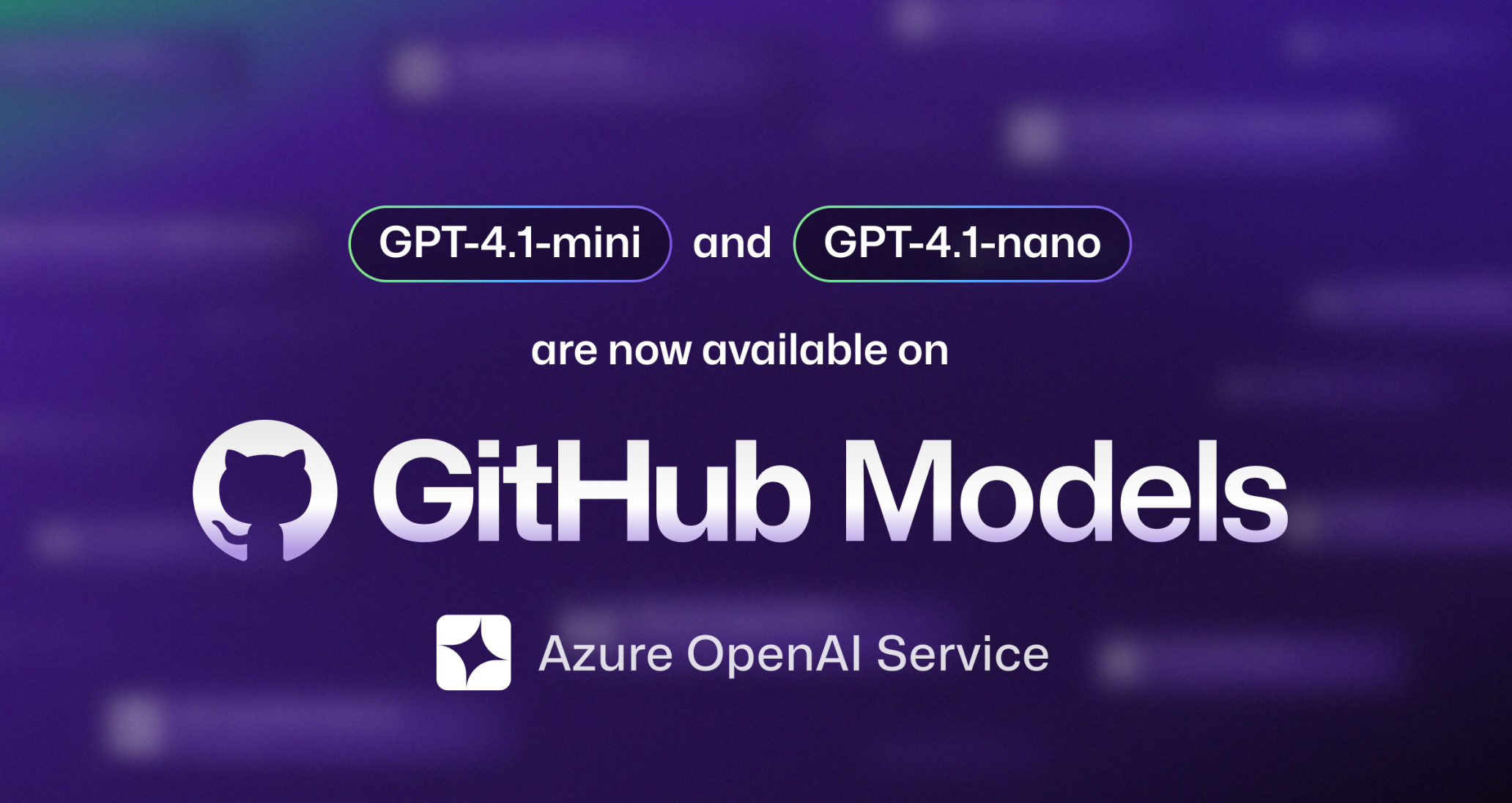OpenAI GPT-4.1-mini and GPT-4.1-nano are now generally available in GitHub Models

Alongside the launch of GPT-4.1 in GitHub Models, we’re introducing GPT-4.1-mini and GPT-4.1-nano—lightweight variants of OpenAI’s latest model. Designed for high performance with lower cost and latency, these models are ideal for real-time applications and workloads that involve parallel or chained model calls.
Both inherit the core strengths of the GPT-4.1 series, including enhanced coding capabilities, improved instruction following, long-context understanding, and multimodal support (text and image). With features like parallel function calling and structured output generation, GitHub Models users can now choose the right-sized model for their specific needs—whether building chatbots, coding copilots, or AI-powered agents.
- GPT-4.1-mini: Combines strong general-purpose reasoning with low cost and latency, supporting both text and vision use cases.
- GPT-4.1-nano: Offers even lower cost and latency, ideal for lightweight tasks and high-frequency usage at scale.
Try, compare, and implement these models in your code for free in the playground (GPT-4.1-mini and GPT-4.1-nano) or through the GitHub API.
To learn more, visit the GitHub Models documentation, and join the community discussions to share feedback and connect with other developers.